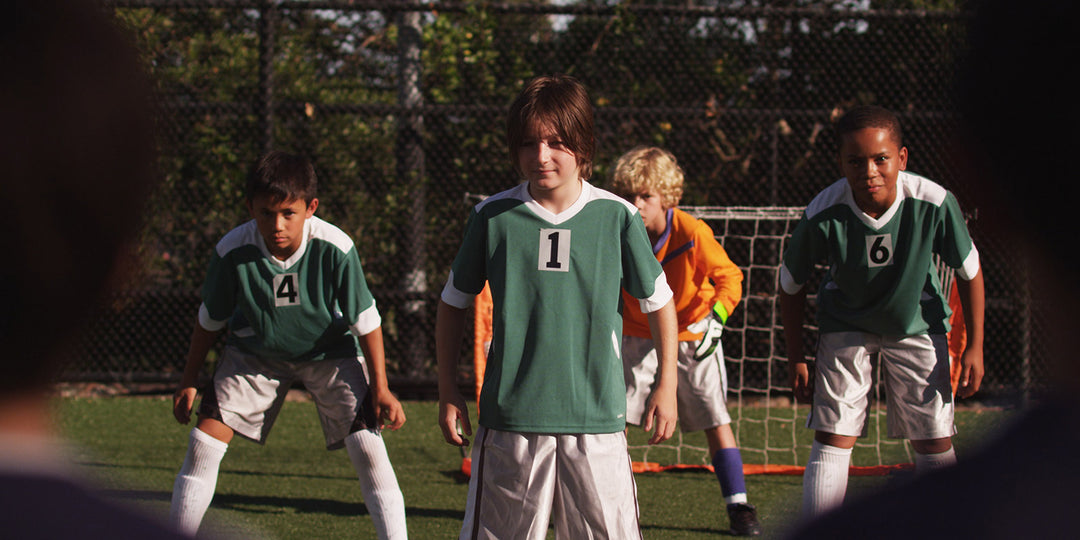Parents of Young Athletes
Fewer Injuries, Faster Recovery, More Success for Young Athletes
Key Messages:
- Getting enough high quality protein is important for faster healing of sports injuries in young athletes
- Protein is the primary building block of skeletal muscle
- Strong muscles support balance, agility, and power in teen athletes
- Choose the highest possible quality protein supplements for your young athletes, like UNJURY®, recommended at America’s Top Hospitals
Helping Your Child Succeed at Sports
You want the best for your young athlete and muscle plays a vital role in the health of student athletes. Building strong muscles requires exercise and good nutrition - particularly protein. Protein is the primary building block of skeletal muscle.
Jennifer Sacheck, Ph.D. and Nicole Schultz, M.S., MPH at the National Youth Sports Health and Safety Institute say, “Protein is an important component of an athlete’s diet as it aids in muscle glycogen recovery and muscle tissue synthesis.”6
Here’s how muscles grow and strengthen with exercise: good exercise creates micro-tears in the muscle tissues. When the body repairs the micro-tears, the repaired muscle is stronger than before – but only if the athlete gets enough protein to fully repair and fortify the muscle.
Provide your student athlete with the highest quality protein to build the stronger and healthier muscles they need to succeed.
UNJURY® Protein provides the highest quality protein you can buy to support muscle health and development.
Signs Your Athlete Isn’t Eating Enough Protein:
- fatigue
- poor concentration
- delayed growth
- bone and joint pain
- difficulty fighting infections
- slow healing sports injuries
Younger athletes might not know the importance of good nutrition or understand the role of protein.
Low quality, big box store brands often do not offer the same great taste, or lean muscle-building value of UNJURY® Protein.
How Much Protein Do Teenage Athletes Need?
Advice from Brittany Wehrle, MS, RDN, CSSD, LD,a performance dietitian with Children's Health℠ Andrews Institute of Sports Performance, says that young athletes need anywhere from ½ to 1 gram of protein per pound of body weight depending on their goals, training status and type of activity1.
The Academy of Nutrition and Dietetics recommends a minimum of 1.4 grams of protein per kilogram of body weight. For a person weighing 150 pounds, this equates to 95 grams of protein per day.2
Other doctors and dietitians provide similar guidance:
- Growing athletes may require 1 to 1.5 grams of protein per kilogram of body weight. 3,4
This means:
| Daily Protein Needs | Suggestions for Meeting Protein Goals | |
| 100lbs athlete | 45grams – 68grams | 1 protein shake after practice + balanced daily meals that include lean protein |
| 125lbs athlete | 56grams – 85grams | 1 protein shake after practice + 1 protein snack + balanced daily meals that include lean protein |
| 150lbs athlete | 75grams – 102grams | 1 protein shake for breakfast, 1 protein shake after practice + balanced daily meals that include lean protein |
*It is important to check with your child’s medical professionals for more specific guidance on nutritional requirements. Each child’s needs may be different.
Injury Prevention with UNJURY
Getting back to youth sports means more practice and conditioning to get kids back into shape before game day. Inadequate muscle conditioning is one of the main reasons why athletes get muscle strains and overuse tendon injuries.
One of the most important things young athletes can do is eat balanced meals with high quality protein. By ensuring that their muscles can support them, this can help young athletes compete safely.
Proper Recovery - Post Workout and Post Injury
Protein nutrition is especially important in these cases:
Immediately after practice and events: this a great opportunity to support increased strength and durability. The body is ready for protein to support muscle development.
When athletes are recovering from injuries. “During the rehabilitation phase, protein needs increase to support tissue recovery and repair, as well as muscle growth.”5
The best protein shakes for teenage athletes have a complete amino acid profile for repairing and rebuilding muscle tissue. Amino acids in protein are like building blocks.
When the body has all of the right building blocks, in the right amounts, it can repair and recover from injuries and grow stronger.
That is why high-quality protein is so important. The Whey Protein Isolate in UNJURY® Protein is superior to other types of protein – even meat and fish – for supporting building and repairing muscles, tendons and ligaments.
It has the highest possible amino acid score(PDCAAS) AND the most leucine of any type of protein. Leucine is essential for good muscle development. Leucine is the Branched Chain Amino Acid that helps activate the mTOR pathway to make tissue, including muscle.
By incorporating UNJURY® Protein into your young athlete’s diet, you can help your child build stronger muscles, prevent injuries, and recover properly from their workout.
Best Protein for Young Athletes:
- UNJURY Protein Powder
- UNJURY Ready To Drink Protein
- UNJURY Protein Bars
Recommended Products
References:
1 https://www.childrens.com/health-wellness/what-young-athletes-should-eat-to-perform-their-best
3 https://www.todaysdietitian.com/newarchives/tdmarch2008pg44.shtml
5 http://nyshsi.org/wp-content/uploads/2012/08/SSSI_Injured_Athlete_Nutrition-1.pdf
6 http://nyshsi.org/wp-content/uploads/2012/08/NYSHSI-Optimal-Nutrition-for-Youth-Athletes.pdf













